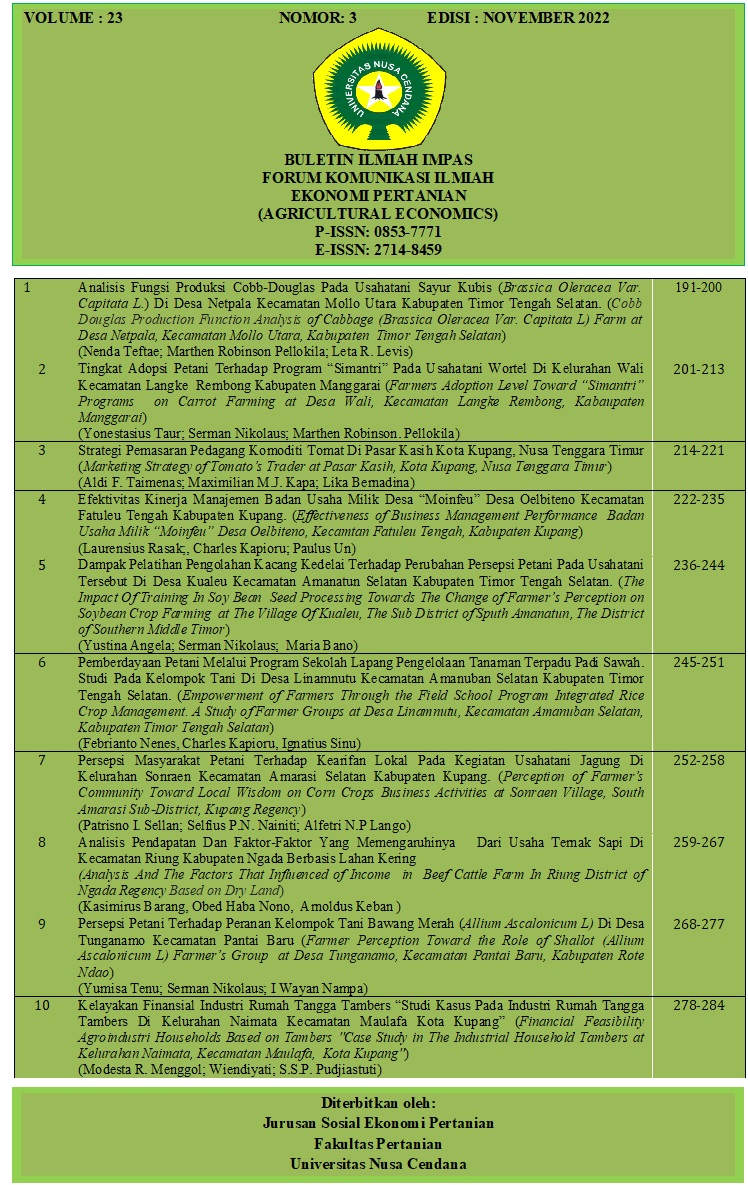TINGKAT ADOPSI PETANI TERHADAP PROGRAM “SIMANTRI” PADA USAHATANI WORTEL DI KELURAHAN WALI KECAMATAN LANGKE REMBONG KABUPATEN MANGGARAI
Abstract
This research has been carried out to the simantri program farmers on carrot farming at Wali Village Langke Rembong Subdistrict, Manggarai District, which be held since February to March 2019. The purpose of this study were to determine: (1) the level of farmers' adoption of the simanti program on carrot farming, (2) the significance relationship between socio-economic factors and the level of farmers' adoption of the simantri program on carrot farming. This research uses survey method. The location of the study was determined by Purposive Sampling and Simple Random Sampling, ie 118 farmer group members were joined in 5 farmer groups in Wali Village Langke Rembong Sub-District, Manggarai District. Determination of 54 respondents was determined using the Slovin formula (Sevilla, 1993). The analytical method to determine the level of adoption of farmers in the simantri program in carrot farming is using descriptive qualitative analysis, which is to determine the significance of socio-economic factors with the level of farmers' adoption of the simantri program on carrot farming using the Sperman Rank Correlation Test. The results of the study show that (1) the level of farmers' adoption of the simantri program in the recommended carrot farming in Wali Vilage Langke Rembong Sub-disrtict, Manggarai Regency is in the “medium” category because the percentage of maximum score achievement from the average score (2,11) is 70%. (2) Socio-economic factors that have a significant relationship with the level of farmers' adoption of the simantri program on carrot farming are age, non-formal education, and farm income. While socio-economic factors that have insignificant relationships are formal education, farming experience, and the number of family dependents.
Based on the level of adoption of farmers toward the program of simantri on carrot farming is still classified as being medium meaning that there are many components of the technology recommended are not implemented properly, therefore it is still necessary to do technical counseling about carrot cultivation technology as recommended to the farmers.

 Yonestasius Taur(1)
Yonestasius Taur(1)















